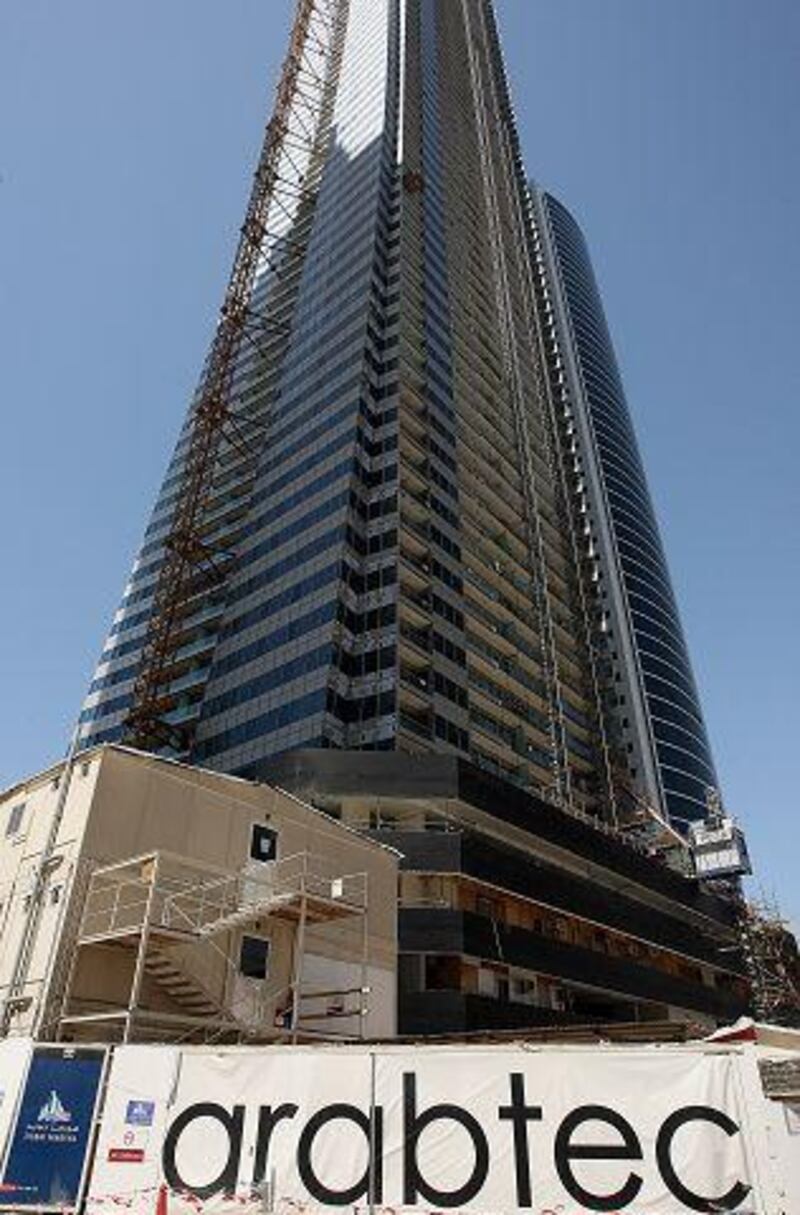Dubai's biggest builder will not sell a majority stake in the firm to an Abu Dhabi investment company, it was announced yesterday, as the outlook for contractors in the emirate improved. Arabtec Holding and Aabar Investments abandoned a deal that would have seen a 70 per cent stake in the Dubai company taken up by the Abu Dhabi Government-controlled investment vehicle.
The Dh6.4 billion (US$1.74bn) deal was scrapped after Nakheel, one of Arabtec's largest clients, was offered $8bn in fresh funds from the Dubai Financial Support Fund, which also proposed to turn $1.2bn of debt into equity in Nakheel, as part of the Dubai World debt restructuring proposals. A joint statement from the companies says they "will no longer pursue the original transactions and will terminate the acquisition documents". They said they would continue working towards forming a future partnership in Abu Dhabi.
Aabar said in January that it would acquire the stake in Arabtec at Dh2.30 a share by using a convertible bond. That would have allowed Arabtec to overcome liquidity problems as a result of cancelled contracts, stalled projects and non-payment from developers that include Nakheel, which is owned by Dubai World. Aabar, the largest shareholder in the car maker Daimler, would have benefited from Arabtec's experience in the region to leverage its growing property division.
Arabtec also planned to use some of the money to fund its own expansion by acquiring companies that would have helped it to plug gaps in the construction supply chain. The deal was also expected to give Arabtec better access to projects in Abu Dhabi. The impetus was lost, however, when the Dubai World debt restructuring proposals were announced last month. That paved the way for the injection of billions of dollars of fresh capital into Nakheel, part of which would go towards paying its trade creditors.
Arabtec stopped work on Nakheel's Al Furjan development in Dubai in January because of unpaid bills. The company was working on a Dh2.99bn project to build 1,500 villas there and had completed 550 before work stopped. Arabtec's chief executive, Riad Kamal, said last month that he hoped to resume work once a payment deal with Nakheel had been reached. "After the Dubai World announcement, Arabtec's receivables are looking more comfortable," said Majed Azzam, an analyst at HC Securities. "So this would have made them decide that they don't need a capital injection from Aabar. Arabtec might have looked to sell at a higher price, and Aabar wouldn't have wanted to do that."
Roy Cherry, the senior vice president of property and construction research at Shuaa Capital, an investment bank in Dubai, said the Dubai Government's support for Nakheel "raised Arabtec's bargaining power, the management realised [the Aabar deal] was no longer a good offer". Investors welcomed the cancellation of the deal yesterday as the stock rose as much as 6 per cent before closing 2.3 per cent higher.
Saud Masud, a property analyst at UBS bank, said that slow market conditions and financing risk remained. Arabtec posted Dh16.8 million of losses for the final three months of last year after an increase in unpaid bills. Last month, the company said developers owed it Dh2.5bn in late payments. Many analysts expected to see a wave of mergers and acquisitions in the property sector after the onset of the financial crisis and the collapse in home prices. But large-scale consolidation has yet to materialise.
In November, Emaar Properties abandoned a merger with Dubai Holding's Tatweer, Sama Dubai and Dubai Properties, now collectively known as Dubai Properties Group, after saying the deal was no longer attractive. "Almost 18 months into the downturn, consolidation remains elusive, which in our view adds to overall systemic risk," Mr Masud added. agiuffrida@thenational.ae





